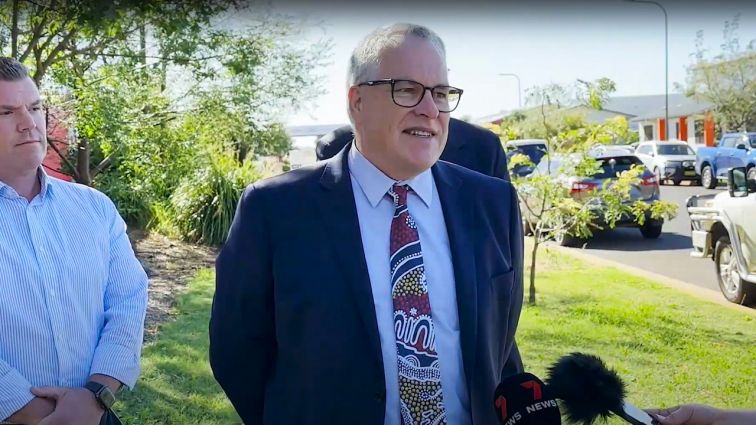Mark Spittal, WNSWLHD Chief Executive, said the District has reached an agreement to purchase a four-hectare site in Spears Drive.
“This is an exciting development for this important project, which has been a high priority for our District for some time and one the community has consistently voiced its support for,” Mr Spittal said.
“The search for a suitable site has been long and challenging as the requirements for a contemporary alcohol and drug rehabilitation facility are quite specific. We have been through a comprehensive process to find somewhere appropriate.”
Mr Spittal said the District will now work with key stakeholders and the local community, including neighbouring property owners, to prepare a development application that will be considered by the Western Region Planning Panel.
The District will also continue working closely with the Dubbo Aboriginal Land Council and will broaden consultation with the community in a designing-on-country process to ensure Aboriginal history is recognised and respected throughout the planning process, and the facility and services are culturally safe and appropriate.
“This site has the size and capacity to support residential, treatment and recreational facilities, and is in close proximity to health services, community, public transport, and other amenities,” Mr Spittal said.
“Connection to the community is vital for people undergoing rehabilitation and that is why around 80 per cent of residential rehabilitation services in NSW are in urban areas similar to this preferred site.
“The Dubbo Alcohol and Other Drug Residential Rehabilitation Centre will be a community-based facility, accommodating up to 16 people for several months at a time. They will be able to undergo detoxification and rehabilitation in an environment that is safe, appropriate, supports their rehabilitation journey, and allows them to maintain contact with family and their community.
“The Local Health District will be purchasing the land, ensuring that capital funding from the NSW and Federal governments is retained for construction. At this point, other details of the agreement remain commercial-in-confidence.
“Completion of the development application is expected to take several months but the goal is to have relevant processes finalised and construction underway as soon as possible, with people hopefully entering the service toward the end of next year.”
Member for the Dubbo Electorate Dugald Saunders said it is exciting to see significant progress being made on a facility that will not only benefit the local community but also people in surrounding communities.
“Drug and alcohol addiction is an issue that affects us all in different ways and recovery can be a hard journey for those who want to take part in rehabilitation,” Mr Saunders said.
“We need to provide the best possible environment for their recovery and transition back into the community, and I would like to thank and congratulate the Local Health District for its work to progress such an important project for our region.”
The Dubbo Rehabilitation Centre will eventually join the 24 existing rehabilitation facilities in NSW, three of them already within WNSWLHD, and the many non-residential programs providing help to those who need it.
The NSW Government has committed $7.5 million over two years towards the construction and operation of the centre, with a further $3 million contributed by the Australian Government to assist towards the cost of construction. NSW Health has also committed an additional $2 million to purchase land for the facility.
While planning and construction are underway, the District will continue to offer a number of non-residential rehabilitation services and programs including the Drug and Alcohol Helpline (1300 877 000), specialist counselling, the Magistrates Early Referral into Treatment program, Opioid Treatment Program, Substance Use in Parenting and Pregnancy Service and the Youth Alcohol and Other Drugs Clinical Support Network.
There is also a range of community-based programs and services available through non-government and private organisations in the Dubbo area, including Lives Lived Well, Wellington Aboriginal Corporation Health Service, Bila Muuji Aboriginal Corporation Health Service, Mission Australia, Family Drug Support and the Western NSW Primary Health Network.
